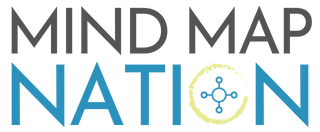ShengGPT: The Future of AI Mind Mapping
The age of YouGPT
I recently came across an article on Google's AI blog about "history informed generation", a machine learning model that learns and predicts actions based on a historical sequence of actions taken during a process. In plain speak: using past data to automate future processes. Google uses this to boost its software engineers development and QA efforts so that it can ship products to market faster with less bugs.
This concept got me thinking about how we can use AI to learn, automate, and ultimately “productize ourselves” as useful AI assistants (or “Agents”) trained in our unique way of problem solving. To explore this idea further, let’s use a hypothetical app called ShengGPT as a thought experiment.
People are drawn to my YouTube tutorials and Mind Map Nation community meetups because they want to learn my approach and mindset of systems thinking and deconstruction. In a nut shell, it’s about breaking down big hairy problems into bite-sized chunks, then coming up with solutions for the parts so that we can build up to a solution that addresses the whole. It's not just about learning mind mapping techniques, but rather my particular style of problem solving.
Now enter ShengGPT, an AI assistant that draws on historical and current records of my mindset, methods, knowledge, and mental models to automatically analyze problems from my perspective. It's like having a digital version of me, ready to help you mind map and problem solve at any moment.
Life with Your Personal Mind Mapper
Let's say you're trying to close a big business deal at work, or you're thinking about starting a side hustle. You're not sure where to start or how to approach the problem.
Summon ShengGPT.
Using the historical data of how I've mapped business problems in the past, ShengGPT guides you through a set of common questions I’d ask like the six-part new project mind map, stakeholder and market incentives, competitor design audits, and economic risks. It then helps you to map out a clear action plan to address them, puts everything into Sprints and weekly Priority Maps, and even turns your messy meetings into brilliant strategies and your chaotic thoughts into pitch perfect presentations. It's like having a business consultant in your pocket, ready to help you tackle any challenge you face at work.
Or maybe you’re fed up with your current job, and ask ShengGPT to use the Perfect Job Framework to identify your next role, and use the Transitions Map to tell your career story during interviews. If you’re not quite ready to leave your company, then ShengGPT will use the Contributions Mind Map to help you get a promotion by demonstrating why you’re an organizational linchpin.
Drowning in an ocean of noisy media? Use ShengGPT to apply the Crisis Analysis Framework to surface historical and system-level information from books, documentaries, and 1st party accounts to reveal underlying drivers and make better sense of sensational news.
In your personal life, imagine you've just had a fight with your partner or a traumatic event happen to someone you love. You're agitated and not sure how to process them, so you turn to ShengGPT as your therapist.
Drawing on the historical data of how I mind mapped feelings, ShengGPT helps you to deconstruct your inner turmoil, breaking them down into concrete emotions and triggers. It guides you to identify the root causes of your stress, and then helps you to come up with insights and actions to address them.
The Productized Self & Agent Stores
Like all machine learning tools (and human coaches for that matter), ShengGPT gets better as it gets to know you. The contextual knowledge is key to truly coming up with a personalized and relevant solution for YOU. This is why I spend a good chunk of my coaching sessions simply asking questions and understanding my client’s background and the nature of her problems.
Moreover, ShengGPT could be designed as a plug-in that works with other AI tools and knowledge sources. This interoperability opens up a world of possibilities, allowing us to leverage multiple AI technologies simultaneously.
While ShengGPT is hypothetical at this stage, it's an interesting glimpse into a future of AI agents modeled after people with unique skills and perspectives - which frankly is every single one of us.
The AI Age equivalent of the App Store could be the “Agent Store” (marketers help me out with the branding will ya?). With enough documentation of our thought process, methods and end results*, we could all potentially train our AI doubles and productize ourselves.
So, how would you use ShengGPT? Would you productize yourself and what super powers would your AI double have? What are your concerns? I'd love to hear your thoughts.
*This is important to close feedback loops, so that the machine will know good from bad approaches based on the end results. Funny enough, this is similar to how us humans learn and level up!
Make the most of your mind maps
Thanks for reading this article. If you found it useful, you can get a new mind map in your inbox every week. Epiphany is your dose of structured thinking and ordered chaos.

